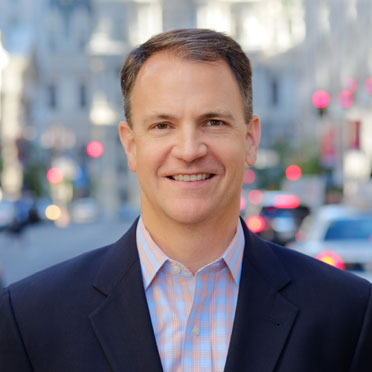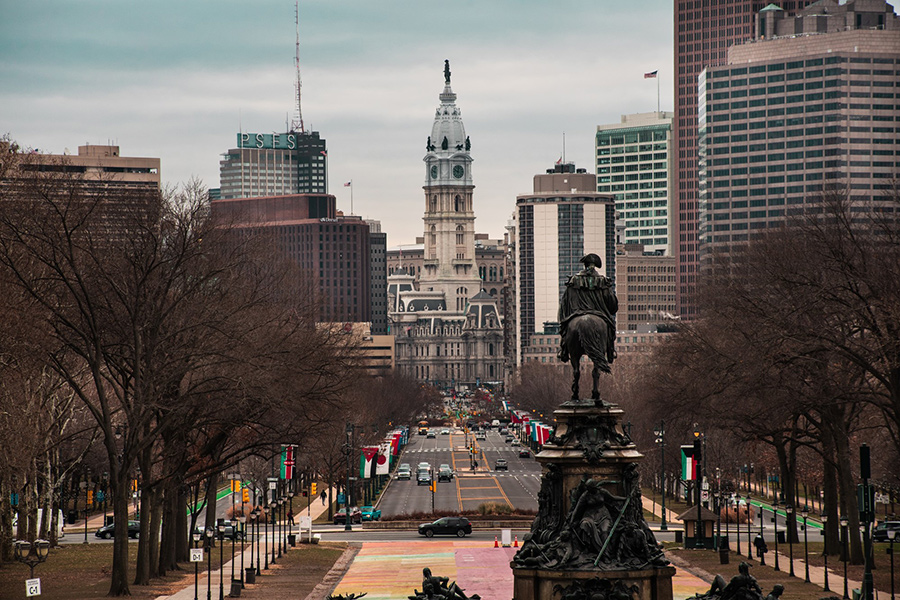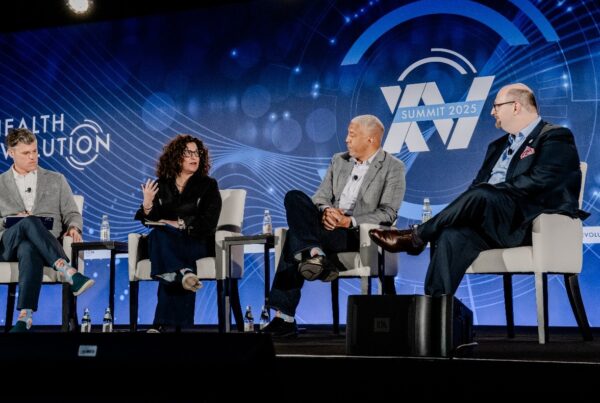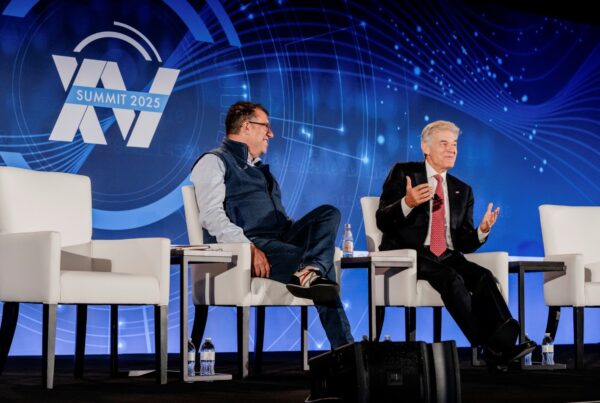American Health Care Cities is a recurring feature at Health Evolution examining the health care market in different cities and regions across the country. How does the health care industry vary across this country? How does it look the same? What are the opportunities and challenges in each city? We’ll be talking with key leaders in some of the most active health care cities in America to better understand if health care, as they say, is truly local.
Other cities covered:
City: Philadelphia, Pennsylvania
Metro area population: 6.09 million
Health care economic benefit: Health care comprises nearly 13 percent of the workforce in Philadelphia. In 2019, Philadelphia’s hospital systems supported more than 660,000 jobs across the state, and contributed $143 billion to state and local economies, a 5 percent increase compared to the previous year, according to the Hospital and Healthsystem Association of Pennsylvania.
Interviewee: Dean Miller, Philadelphia Alliance for Capital & Technologies

Dean Miller, PACT credit: Philadelphiapact.org
How has Philadelphia evolved as a health care market?
I moved to Philadelphia over 30 years ago, I did my graduate education here. It wasn’t until 7-8 years into my time in Philly that I became interested and had the opportunity to work in the health care space, as an investor. I worked in a big company in the finance department and then with a startup. When I jumped into the investment side, I became very interested in the health care space, not just investing in the region but nationwide. And I continue to do so. At my core, I’m a health care investor. I have invested in therapeutics and biotechnology companies in my time, but these days I primarily invest in med tech and digital health.
Philly has always had a real strength in health care. A lot of early surgical techniques were invented here. The first hospital in the country was here. The first medical school. There’s a reason that one in six physicians find their way through Philadelphia from an academic perspective. It has a longstanding history. In the past decade or two, Philadelphia has continued to establish itself as a leader in health care in a lot of different ways. The best and most recent example of that is in the cell and gene therapy world. Spark Therapeutics, which got the first gene therapy product for blindness approved, is in Philadelphia.
The city is of a size and scale that it’s not a one-trick pony when it comes to health care. There are multiple success stories. For example, Centocor, which was acquired by J&J for billions of dollars, was one of the companies that put monoclonal antibodies on the map for a variety of uses. At one point in time, and it’s not far from this, but 80 percent of the pharmaceutical workforce was within a 100-mile radius of Philadelphia. Everyone talks about the Silicon Valley, Boston, New York, Southern California…big three biotech cities became big four to add Philadelphia. It was a missing piece and I’m not sure why it was missing because it’s a massive center for innovation in the health care space, whether its drugs, devices, digital health. From a payer perspective, you have Independence Blue Cross and a few others. From a provider perspective, you have Jefferson Health, Penn Medicine, and Temple Health. You have a lot of amazing oncologists, particularly within the Abramson Cancer Center at Penn Medicine. They, along with the Children’s Hospital of Philadelphia (CHOP), were the inventors of the CAR t-cell therapy, which has made a huge difference. And with all the talk about vaccines in the last 18 months, the reason we got a vaccine for COVID in less than 12 months ties back to the work done by two Penn researchers. A decade ago, they unlocked the power of mRNA therapy, which provided the path to create that vaccine in less than 12 months.
What are some of the other notable companies/organizations centered in Philly?
Accolade, which went public a year ago, was founded in Philadelphia and is really changing the face of how self-insured employers deliver health care. Amerisource Bergen, a Fortune 10 company, is headquartered here in Philadelphia. They are a big part of the health care supply chain.
Virtually every major pharmaceutical company has a significant presence in this region. But there are also up-and-comers, like Charisma Therapeutics, doing amazing work in the oncology space. Another company that you want to track closely in the cancer space is Century Therapeutics. I track capital coming into Philadelphia every year and it’s almost always dominated by the health care space.
What are the biggest challenges health care organizations in Philadelphia are facing?
When you talk about the drug and device space, regulation is always a challenge that’s never going to be easy. It’s a part of their process. Raising capital is a challenge, but it has become less so in recent years. There is a significant amount of capital in the public and private markets available to differentiated health care companies with the right management teams. Talent is always a challenge. One of the reasons that Philadelphia has been such a big base of health care innovation is because of the availability of talent. And I’m not just talking about scientists and clinicians, it goes farther than that. You’re seeing significant growth in the use of information technology even within the biotechnology space and the device space. Philadelphia and Boston often get compared for the size of their academic communities. Philadelphia actually noses out Boston with over a hundred colleges and universities within the local region, which is pretty significant supply. That’s great unless all those graduates head for the hills once they are done, but Philadelphia has become a magnet, and exceeds Boston, in terms of college graduate retention. It’s well it’s over 50 percent. That is not something that existed ten plus years ago. They are staying because of the jobs offered by those companies I mentioned and because the quality of life is good. It offers what you’d want in an East Coast city but is a heck of a lot more affordable than New York, DC and Boston.
What are some things health care leaders may not know about Philadelphia as a hub for health care?
As I mentioned, the quality of life. Your readers outside of Philadelphia may not be aware of the fact that Philly is arguably the last affordable metropolitan area on the East Coast. You can still have a really good quality of life in Philadelphia without paying the certain amount of money for your house and all the things that come with it, like good schools. We’re an hour from New York and an hour and change from D.C. We’re less than 90 minutes to the Atlantic Ocean in the Jersey Shore and the same distance to the mountains in PA and beyond. There’s a real quality of life that people are attracted to here. A number of companies have landed here in the last decade plus without having roots here. Literally, companies do their research and come here without having had any ties to the city. It’s a big city, with big city assets, but it also has the talent. When you are attracting talent and make no bones about it that’s the biggest challenge when you are building a company, quality of life matters and we have that in spades here. It’s a fabulous place to live and that’s why you’ve seen our college retention rate go through the roof, literally doubling in a decade.
We’re a land of a lot of success stories that people don’t hear about. Yes, we have big pharma, J&Js, Pfizer, GSKs, Mercks…but truth be told, the pharmaceutical industry has been graded below the oil and gas industry from a consumer friendliness perspective. And sometimes that kind of muddies all the good that the health care industry is doing. So, Philadelphia has been home to a number of innovative companies that you might not have heard of. Accolade is not a household name. People wouldn’t necessarily know it. Amerisource Bergen is a massive company, but people wouldn’t have heard of it. It’s not CVS. It’s not Rite Aid. It’s not a brand that rolls off your tongue. One of the first companies that developed an electronic medical record was right here in Philadelphia, a company by the name of Shared Medical Systems. It was ultimately bought by Cerner, which is a Midwestern company, but their second largest outpost is here in Philadelphia because of that Shared Medical Systems history. The Salesforce of the Biotech industry, Veeva Systems, based out of California, their second largest outpost is in Philadelphia. You wouldn’t know that but because of the size, scale, and talent in this community, where it’s based and its access to the East Coast, plus our airport and ability to access the world…this is a region that has it all.











